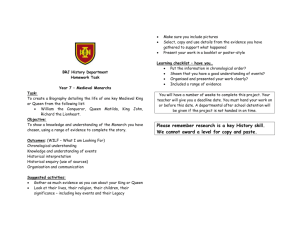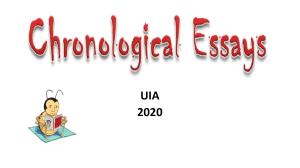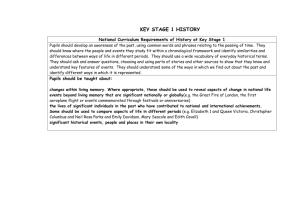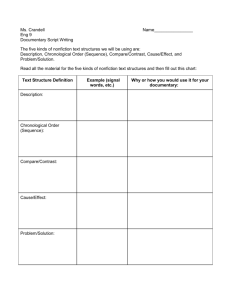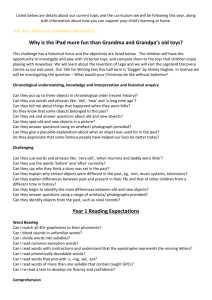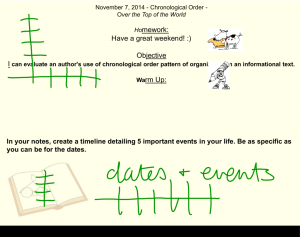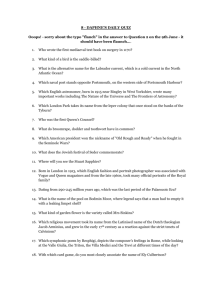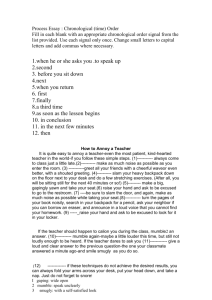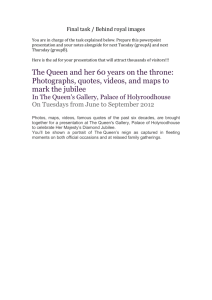Y1 History
advertisement
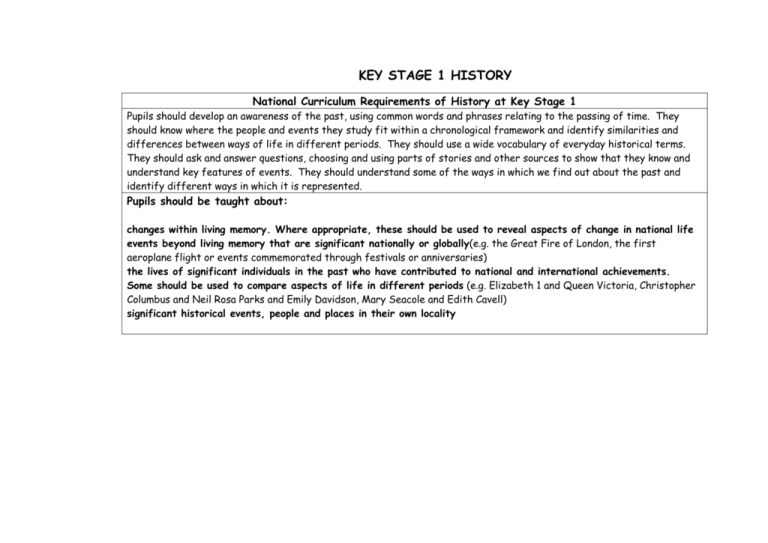
KEY STAGE 1 HISTORY National Curriculum Requirements of History at Key Stage 1 Pupils should develop an awareness of the past, using common words and phrases relating to the passing of time. They should know where the people and events they study fit within a chronological framework and identify similarities and differences between ways of life in different periods. They should use a wide vocabulary of everyday historical terms. They should ask and answer questions, choosing and using parts of stories and other sources to show that they know and understand key features of events. They should understand some of the ways in which we find out about the past and identify different ways in which it is represented. Pupils should be taught about: changes within living memory. Where appropriate, these should be used to reveal aspects of change in national life events beyond living memory that are significant nationally or globally(e.g. the Great Fire of London, the first aeroplane flight or events commemorated through festivals or anniversaries) the lives of significant individuals in the past who have contributed to national and international achievements. Some should be used to compare aspects of life in different periods (e.g. Elizabeth 1 and Queen Victoria, Christopher Columbus and Neil Rosa Parks and Emily Davidson, Mary Seacole and Edith Cavell) significant historical events, people and places in their own locality Knowledge, Skills and Understanding breakdown for History Year 1 Chronological understanding Knowledge and Interpretation Historical enquiry Can they put up to three objects in chronological order (recent history)? Can they use words and phrases like; old, new and a long time ago? Can they tell me about things that happened when they were little? Can they recognise that a story that is read to them may have happened a long time ago? Do they know that some objects belonged to the past? Can they explain how they have changed since they were born? Do they appreciate that some famous people have helped our lives to be better today? Do they recognise that we celebrate certain events, such as bonfire night, because of what happened many years ago? Do they understand that we have a queen who rules us and that Britain has had a King or Queen for many years? Can they begin to identify the main differences between old and new objects? Can they identify objects from the past, such as a vinyl record? Can they ask and answer questions about old and new objects? Can they spot old and new things in a picture? Can they answer questions using a artefact/photograph provided? Can they give a plausible explanation about what an object was used for in the past? Year 1 (more challenging) Can they put up to five objects/events in chronological order (recent history)? Can they use words and phrases like: very old, when mummy and daddy were little? Can they use the words before and after correctly? Can they say why they think a story was set in the past? Can they explain why certain objects were different in the past, e.g. iron, music systems, television? Can they tell us about an important historical event that happened in the past? Can they explain differences between past and present in their life and that of other children from a different time in history? Do they know who will succeed the queen and how the succession works? Can they answer questions using a range of artefacts/photographs provided? Can they find out more about a famous person from the past and carry out some research on him or her?
